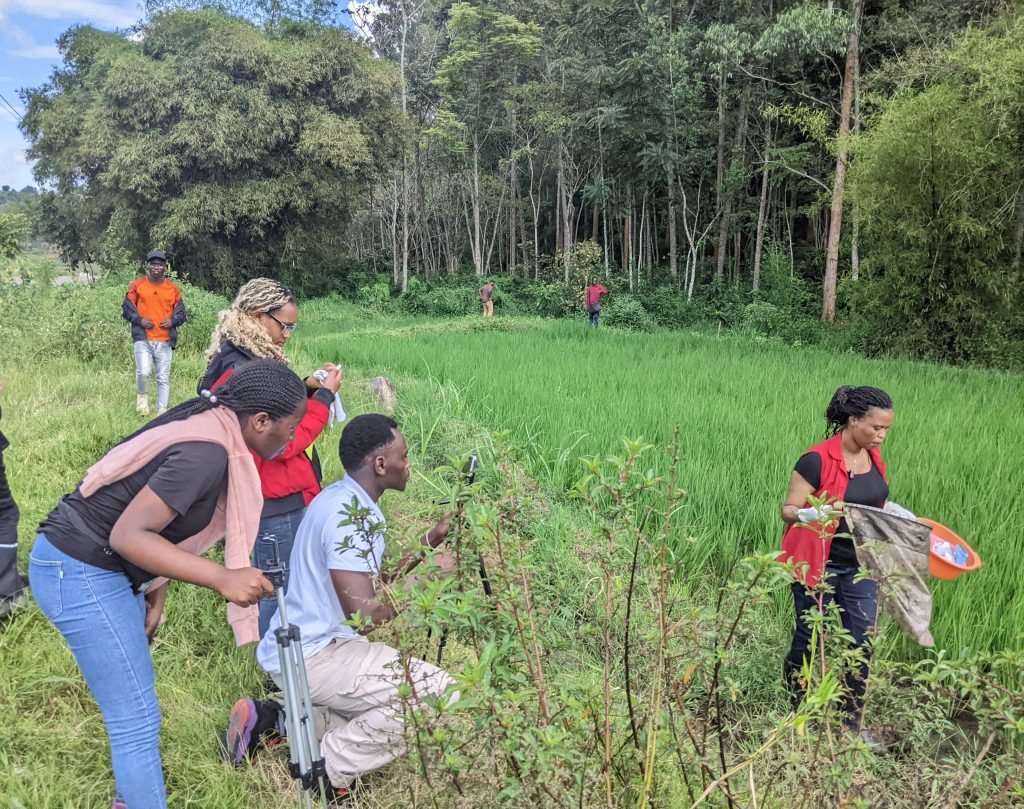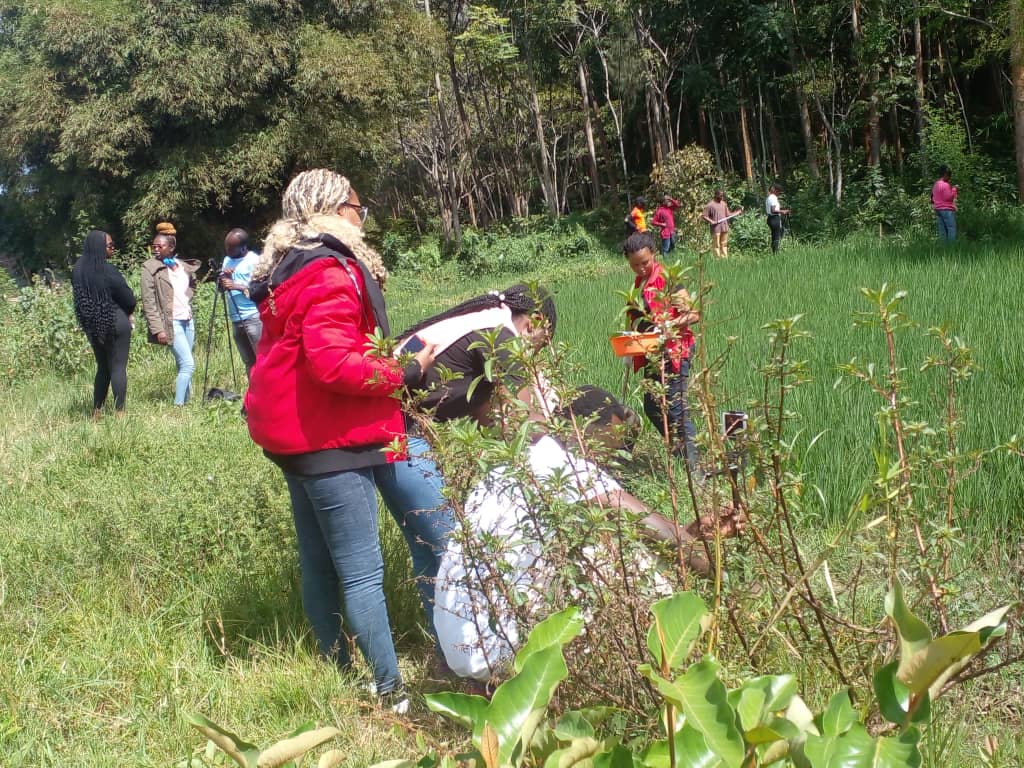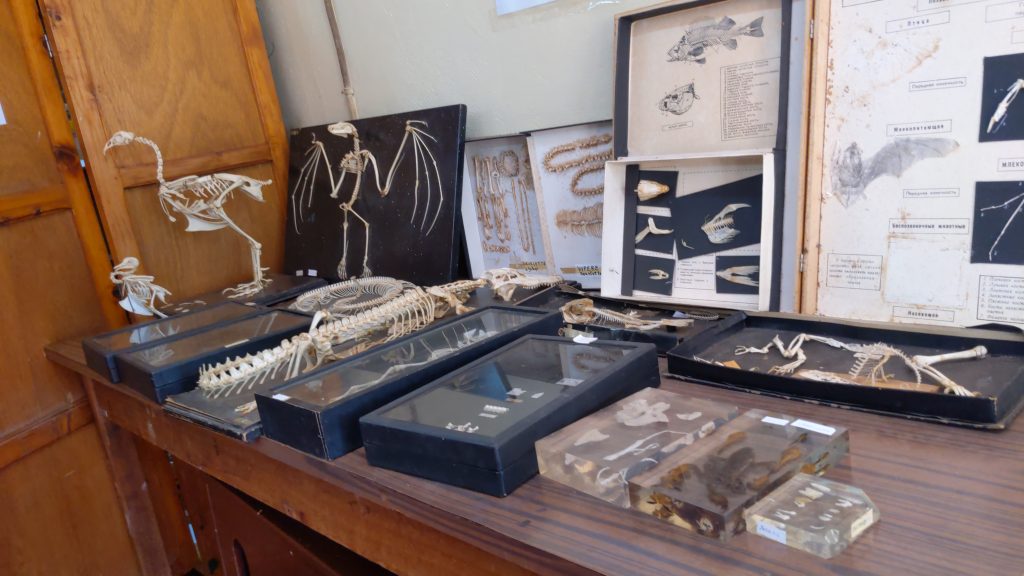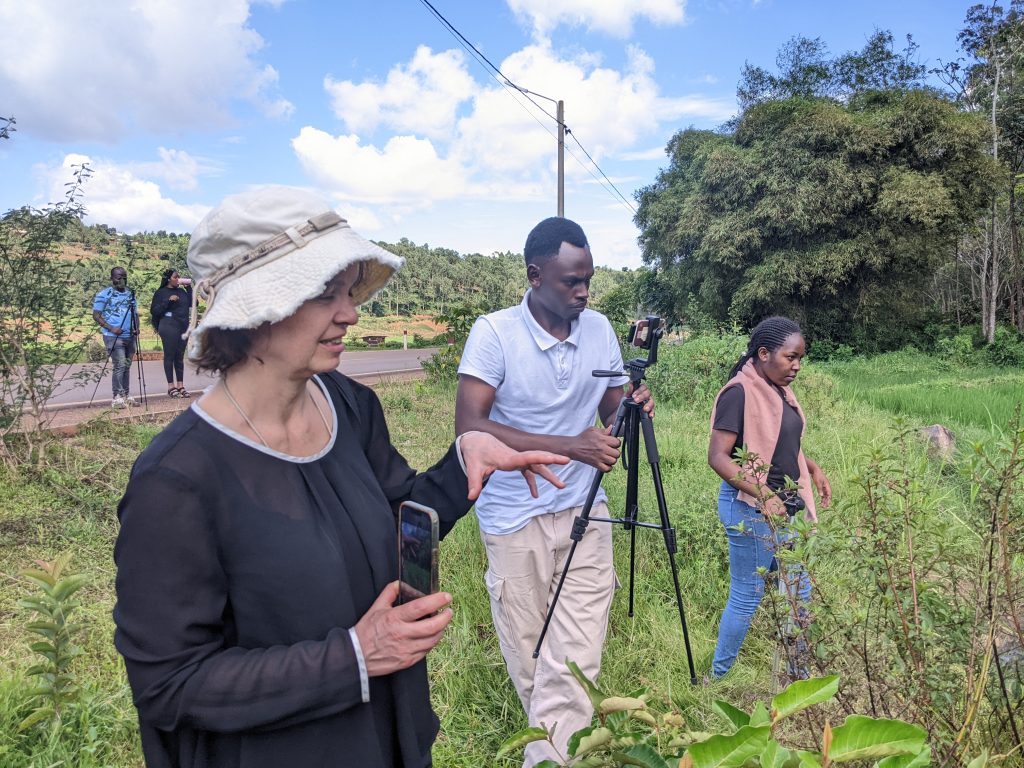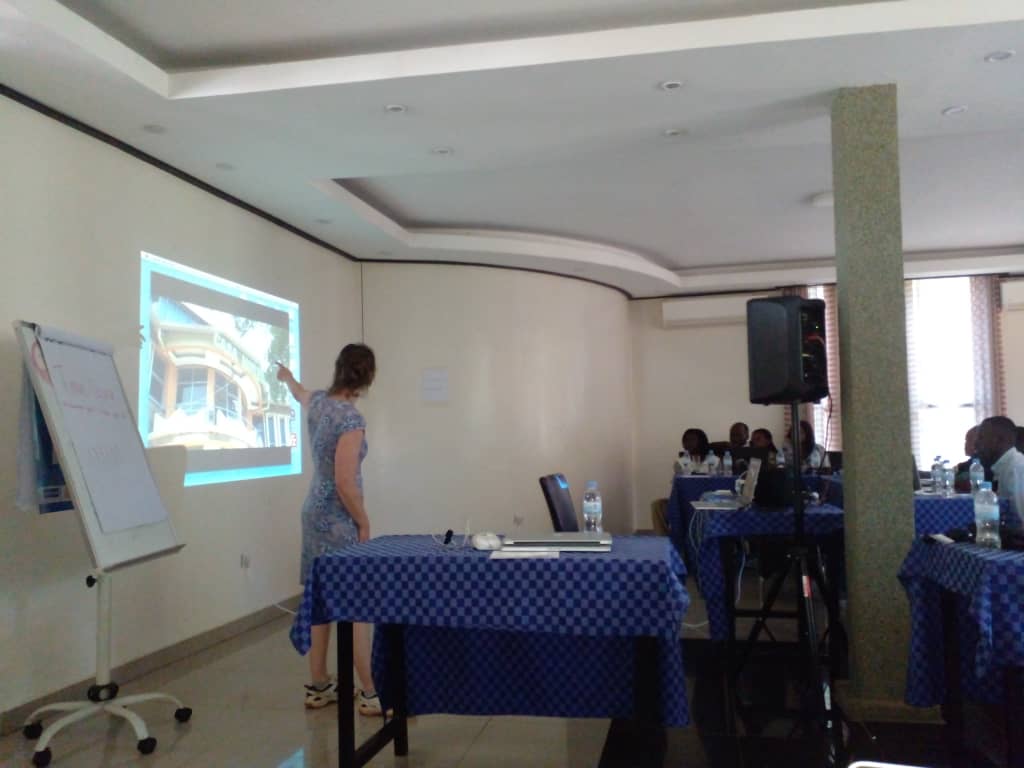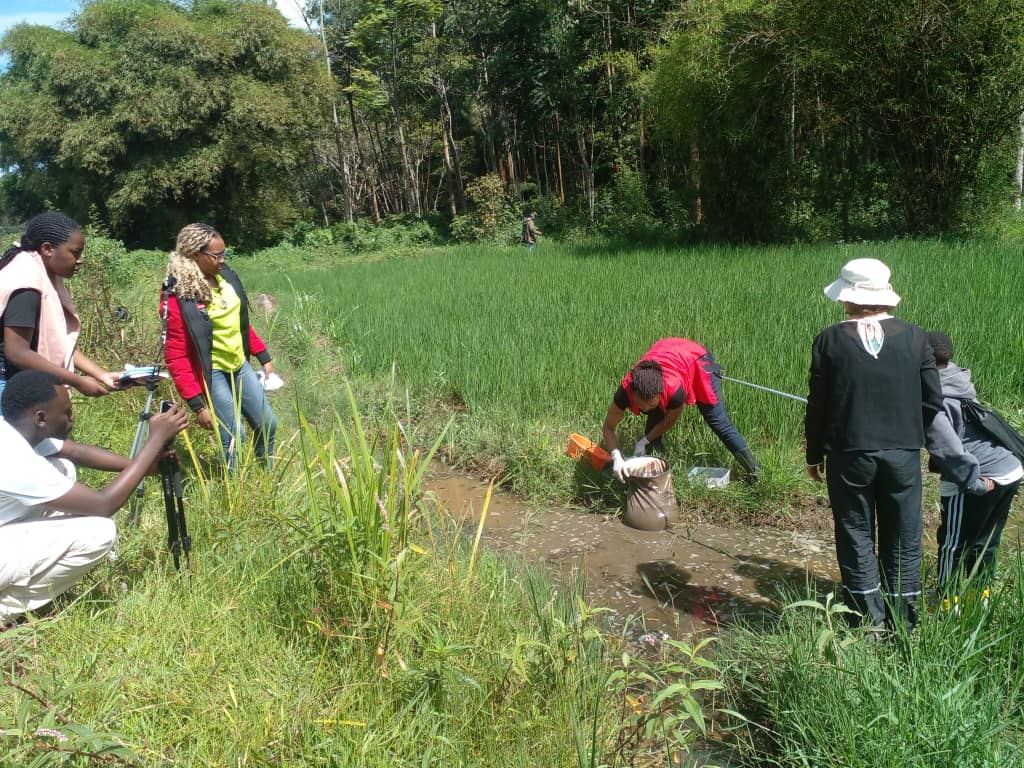When it comes to reporting, most youth in the journalism industry tend to focus on entertainment, lifestyle, sports, and technology, and not environmental reporting despite its crucial nature.
From March 10th to 17th, Rwanda Media Program, in collaboration with FOJO media Institute gathered twenty students from Mount Kigali University Rwanda (MKUR) and University of Rwanda (UR) in Huye District-Eastern Rwanda to equip them with skills in TV production and Environmental journalism.
Anneli Megner Arn, an environmental journalist from Sweden spearheaded the seven day training, in which she equipped the vibrant students with techniques on how to use a mobile phone as a fast tool to report news related to the environment.
Speaking to MKUR magazine, Megner called upon ‘young’ journalists to engage in reporting about environment related stories emphasizing that there’s no Planet B, hence the need to protect mother Earth.
“The environment needs as much support like other sectors, because we cannot survive without it, if we keep destroying it, we have no planet B to relocate to”, she remarked.
During the training, students were divided into groups, to cover topics on, small mammals, ants, amphibians, invertebrates, butterflies, and other pollinators. According to Megner, “journalists can’t cover the same stories as there’s a lot they normally oversee when it comes to reporting about the environment”.
Ingabire Janviere, a final year student at MKUR, whose group studied about ants, expressed utmost appreciation for the training saying it was such an eyeopener.
In her words, ” I always thought journalists can only cover hard news, disaster or big animals. Never have I imagined ants and small insects to be a source of information, that one could report about, better yet earn a living from”.
Likewise, Yvan Ngendanzi, from UR revealed that in addition to the skills he had, the training equipped him with more knowledge in environmental reporting, thus echoing a sound call to fellow journalists to consider the subject with high regard.
“I call upon fellow journalists to join in we raise awareness, as well as provide solutions to the deteriorating nature of the environment. If we put our efforts together, we can make a difference”.
A Researcher with Wetland Ecosystem Health Evaluation using Benthic Macroinvertebrates Indicators, Aloysie Mukasangwa extended heartfelt gratitude to the training team saying journalists have the power to speak and be heard so seeing them involved in environment related issues is a win on their side.
“We are not used to seeing journalists being trained in our sector of environment. This gives us the courage to share the experience knowing well enough that the message concerning climate change and the environment will be shared with so many people, she remarked, adding that with joined forces, efforts in environment conservation and biodiversity sustainability as well as adapting to policies given can be implemented.
Students and journalists were challenged to advocate for environmental conservation, given its crucial role in the well being of human nature.
